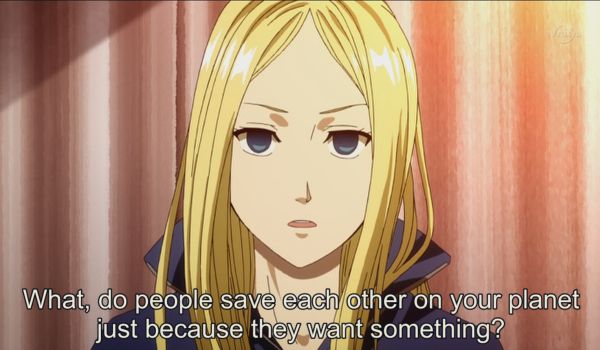
In the world of Daggerfall, a kindly mage or priest may heal you in a minute, unlike my state-appointed doctor who usually just tells me to exercise more. ^_^
Yesterday I wrote about how the chance of women doing dangerous work depended largely on the medical tech level of society: If plagues keep killing people off, someone has to supply more babies. Each human has a slightly different immune system, so rolling the dice over and over makes perfect sense in that perspective. This is how it has been in the real world, but any fantasy world using mortals will have to contend with the same issues.
Arthur C. Clarke famously said that “any sufficiently advanced technology is indistinguishable from magic”, but I would also argue that any sufficiently researched magic is indistinguishable from technology. For instance in Robert Jordan’s Wheel of Time series, the One Power is reliable and thoroughly researched, making magic a very predictable thing. Healing is available but limited by the number of channelers in the world.
In Stephen Donaldson’s first Covenant trilogy, the Land is rich in magic. It is not well understood, but simple healing magic is widespread. The citizens there seem to be no worse off than modern man when it comes to surviving ordinary afflictions. There are of course other dangers in Covenant’s dreams, but ill health is not the worst of them.
In contrast, the Middle Earth of Tolkien – while fantastic in some ways – does not have widespread magic use. Magic is spectacular, miraculous, and rare. The elves seem to have healing power and are pretty much immune to non-violent death, but they live by themselves for the most part. Ordinary people and hobbits cannot expect to have their wounds cured quickly and cheaply in their local village.
The inhabitants of the role playing game Daggerfall, on the other hand, are in luck: Pretty much any town or large village has a temple where diseases and wounds can be healed either for free or at a reasonable price. There are also potions to be bought. The Mages Guild also has a school of Restoration, as well as selling various healing items. With regard to diseases and accidents, Daggerfall would be a better place to live than the modern world. (Of course, the rampant violence makes up for this.)
If you create your own fantasy world, it would be wise to give some thought in advance to the “magical tech level” of the world, or the parts of the world where your story takes place. Is magic widespread, reliable and well understood? In that case, life may be similar to modern life in many ways: Affordable health care, fast transportation, long-distance communication and so on. The principles would be different, but humans have largely the same basic needs and desires everywhere, so magic would be used to accommodate them much like technology is here.
A classic example of this is the “Darkness” series by Harry Turtledove, set on the continent of Derlavai. This world has undergone a thaumaturgical revolution similar to our industrial revolution, and magic is used in much the same way as technology is here. In fact, the series is an elaborate paraphrase of the second world war, but different in details so as to remain unpredictable.
It can be quite interesting to look at books and role playing games in this way, seeing whether their “magical technology” is in line with the culture described. And of course, it will be useful if we try to write our own fantasy stories, as some of us like to do.



